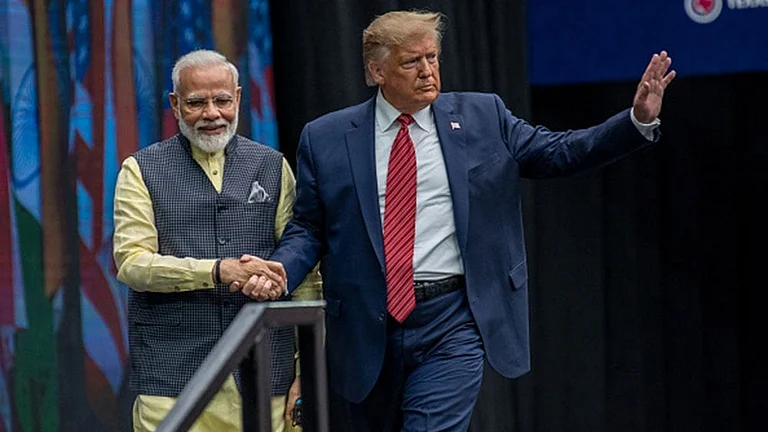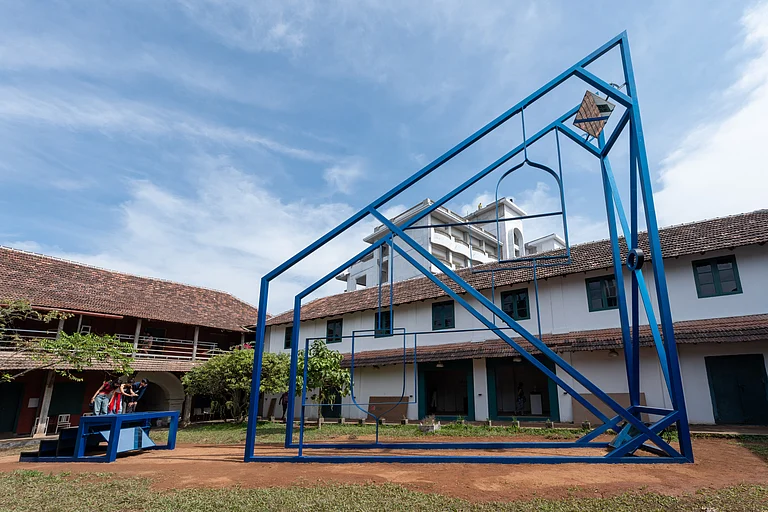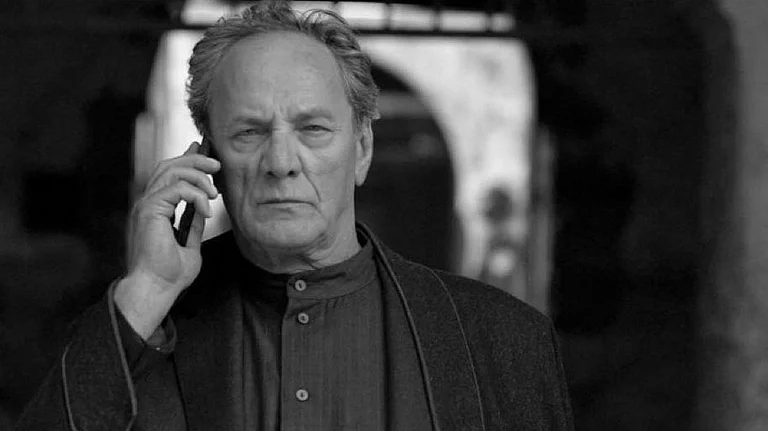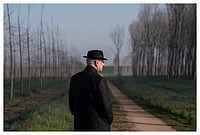
The Voice of Hind Rajab has won the Grand Jury Prize at Venice.
It follows a rich slew of Palestine films this year that have been everywhere from Sundance to Cannes
Can these be a needle point in shifting the discourse around the genocide, breaking the silence?
At the recently concluded Venice Film Festival, Gaza drama The Voice of Hind Rajab won the Grand Jury Prize, the second highest honor in the competition. Even before it even premiered to a record 23-minute-ovation, the Kaouther Ben Hania-directed docudrama already had the likes of Hollywood biggies such as Brad Pitt, Joaquin Phoenix, Rooney Mara and directors Alfonso Cuarón and Jonathan Glazer backing it as executive producers. It racked up sales in major territories, including Spain, Japan, Portugal, Thailand, Turkey, Greece, Hong Kong and is now headed to the Toronto Film Festival for its North American premiere. Tunisia has selected the film as its Best International Feature Oscar entry. Annemarie Jacir’s historical drama Palestine 36 is also premiering at the Toronto Film Festival. Earlier this year, Cherien Dabis’ multi-generational epic All That’s Left Of You swept press and audiences alike at the Sundance Film Festival, later picking up an audience award at the Sydney Film Festival. Jordan has chosen it as its Oscar entry. Both films have a common US distributor in Watermelon Pictures.
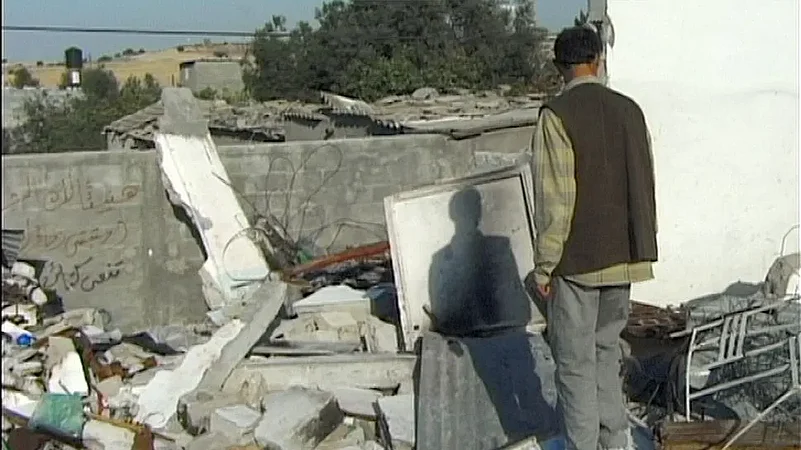
But what is the significance of the spiked interest in Palestinian films across global film festivals this year? Can this sudden visibility contribute in any effective sense to the battle of perceptions that has kept global citizenry from outraging against Israel’s ongoing war on Gaza? Samuel Blanc, head of sales at The Party Film Sales, which is handling Ben Hania’s film, told The Hollywood Reporter, “I think one reason there is such interest in these films from buyers and audiences is that people feel that they need to do something.” He further stated, “We all feel powerless, and we all want to do something. And I think getting a film out there about it is part of what we can do.” In her acceptance speech for the Silver Lion at the Venice Film Festival, Ben Hania pointed out the role cinema could play during an ongoing genocide. She observed, “Hind’s voice was a cry for rescue the entire world could hear but no one answered. Her voice will continue to echo until accountability and justice is served. Cinema cannot bring her back nor can it erase the atrocity that was committed against her. But cinema can preserve her voice.”
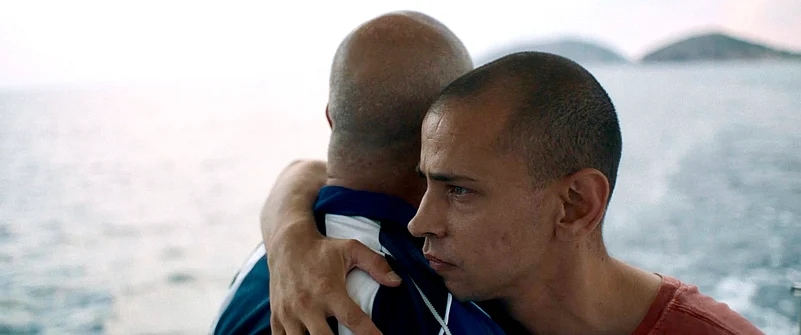
The disquiet in film festival circuits against the Gazan genocide has been rising steadily since early this year, demonstrating how filmmakers, critics and audiences alike see cinema as a means of extending solidarity to the Palestinians. In February, the Berlin Film Festival had Syrian-Palestinian director Ameer Fakher Eldin premiere his displacement-centered film, Yunan. It was the only Arab film in competition for the Golden Bear. Elsewhere in another strand at Berlinale, Palestinian filmmaker Areeb Zuaiter screened Yalla Parkour, a documentary selected in Panorama. At Cannes, Sepideh Farsi’s Put Your Soul On Your Hand And Walk—a documentary on Gaza photojournalist Fatima Hassouna who was killed along with several family members in an Israeli air strike—got a US distributor on board even before the festival concluded. Its sales have expanded to Japan, Australia, New Zealand and Canada. Palestinian director Tawfeek Barhom won the short film Palme d’Or for I’m Glad You’re Dead Now, which spins around two brothers confronted with childhood secrets. At Locarno, Kamal Aljafari’s documentary With Hasan In Gaza, a visual trip through Gaza in 2001, vied for the Golden Leopard. It stitches in rediscovered old video footage. The film opened the International Competition at the festival. Aljafari described it as “an homage to Gaza and its people, to all that was erased and that came back to me in this urgent moment of Palestinian existence, or non-existence. It is a film about the catastrophe, and the poetry that resists.”
However, there are also demarcations surrounding a Palestinian film which appears most palatable for markets. Cannes also had Once Upon A Time In Gaza which won Best Director for Tarzan and Arab Nasser in Un Certain Regard. Straying from any explicit political gestures, the film mixes genres freely in the mold of an electrifying Western-cum-thriller. This has fumbled in finding sales.
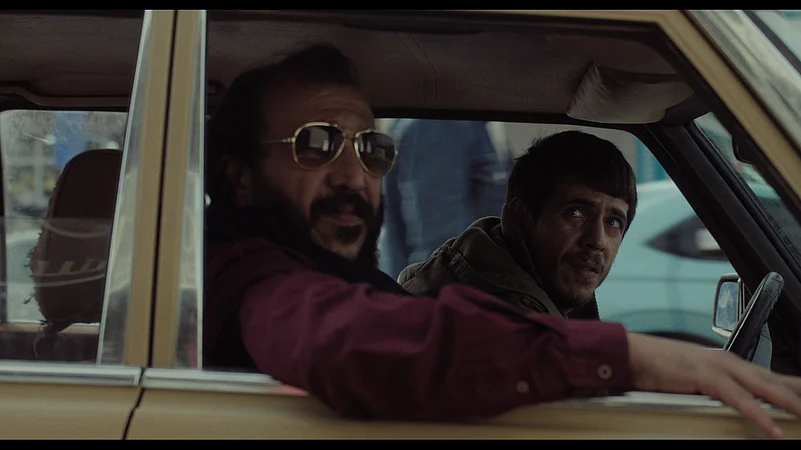
Nevertheless, hope persists in unambiguous gestures, like the forthcoming San Sebastian Film Festival calling for an immediate ceasefire and a trenchant condemnation of Benjamin Netanyahu’s government and its genocide of Palestinians. The open letter put out by the festival states, “They are killing boys and girls. They are killing journalists and humanitarian workers. They are using starvation as a weapon. They are preventing and hindering access to humanitarian aid. They are forcing the mass displacement of the Palestinian population.” It expresses anguish in explicit terms, saying, “They are razing buildings to the ground. They are bombing hospitals, too. They humiliate, conquer, squash. They are destroying Gaza. They scorn international legality. So much atrocity, so much terror is unbearable. We are beside ourselves with anger and pain at such injustice.”









